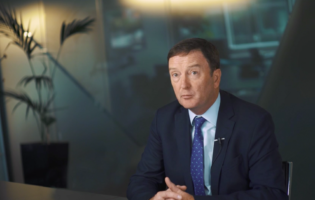Investment Outlook - Market Update

This time a year ago, we made clear that we expected a material ‘regime shift’ for monetary policy worldwide, a very different environment from what investors had experienced over the previous decade. Therefore, the prior decade of central banks driving strong asset class returns (that were in our view beyond those merited by fundamentals) should now be over. For 2022 and beyond, we expected previously market-friendly central banks to become more the foe of markets! In the event, the first nine months of 2022 have been torrid for all asset classes as they struggle to cope with rapidly rising interest rates. The post global financial crisis regime is truly over.
To us, the market at present is divided between two different mindsets. At KBI, we remain firmly of the more cautious ‘regime shift mindset’, arguing that we are now in a different macro-economic regime (higher inflation; higher interest rates and lower economic growth) and likely to remain as such for coming years. Against that there are investors who remain in a more positive ‘mean-reversion mindset’ expecting or hoping for a return to the regime of low inflation/low interest rates that prevailed for the past decade. This can be evidenced by a few ‘hope’ rallies that have occurred during 2022 to-date, each time rewarding yesteryear’s winners (bond yields drop; growth/momentum stocks rally etc) only to be subsequently disappointed by further evidence that the inflation and interest rate outlook has truly changed. This tug-of-war between the two mindsets may well continue, but ultimately we expect patience and fundamentals to win out.
Our expected environment of high and stubborn inflation, higher interest rates and lower growth does continue to provide opportunity for active portfolio managers to outperform. To date, both economic growth and company earnings have remained relatively robust and resilient. It increasingly looks likely that developed economies will enter a recession during 2023, and consequently we do expect material downgrades to company earnings. For example, while the current market consensus per MSCI is for global earnings growth of +6% for 2023, we would expect the eventual number to be more like minus 10%. Against this background, equity and bond markets will, we believe, continue to struggle and volatility remain high, as the numerous global uncertainties persist.
The KBI investment team remain ever vigilant, focusing on both our top-down macro analysis and bottom-up company analysis. Positive developments on the war in Ukraine or indeed a re-opening of the Chinese economy would be very helpful to the global outlook.
Asset class outlook:
Equities
At an aggregate valuation level, having fallen materially during 2022, equity market valuations are much cheaper than at the beginning of the year, and now much closer to historic averages. The ‘regime shift’ has had its consequences not just in delivering negative equity market returns but has also crushed many previously highly-valued stocks and sectors, with perhaps further to go. Stock and sector winners have themselves been volatile from quarter to quarter (and indeed intra-quarter) this year as the market has ‘flip-flopped’ between the two mindsets. Looking ahead, we believe that while top-down has dominated much of the market behaviour YTD, bottom-up company performance will be a material driver of performance over coming quarters. Importantly, the earnings resiliency and balance sheet strength of companies is a key focus for us.
We believe that the rotation that started 12 months ago, favouring stocks backed by strong fundamentals and less dependent on ‘hope’ is likely to continue. In an environment of higher nominal interest rates and inflation, attractively-valued, higher-yielding equities with attractive dividend growth become very appealing, as do companies who have the attributes of more secular than cyclical growth. We will continue to focus on bottom-up stock picking and with balanced portfolios focusing on many of these attributes.
Bonds
Bonds as an asset class have truly experienced an annus horribulus as the realities of higher inflation, higher interest rates and significantly less supportive Central Banks have impacted. Despite a challenging last few quarters, bonds remain relatively poor value and while yields have risen materially this year, they have done so from historically low levels and may rise still further as inflation remains stubborn.
While much focus has been on Government bond yields, we also monitor corporate bond markets for any signs of distress at a company or indeed sectoral level, as the cost of funding is increasing materially.




